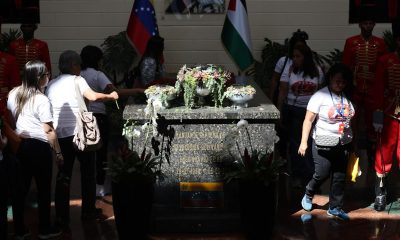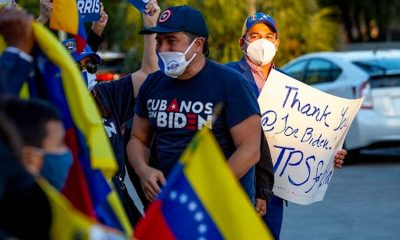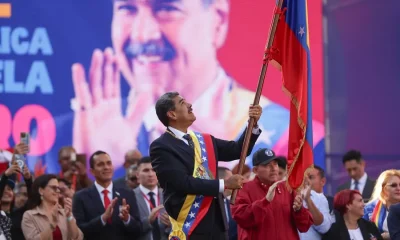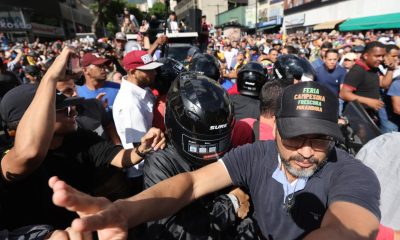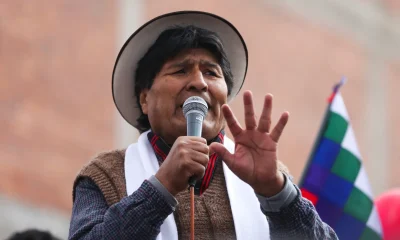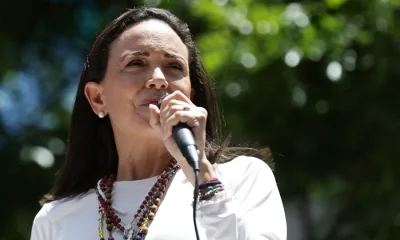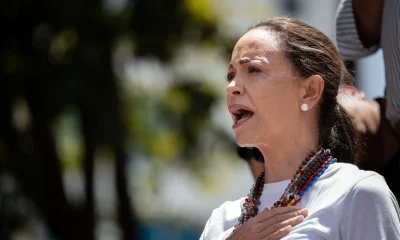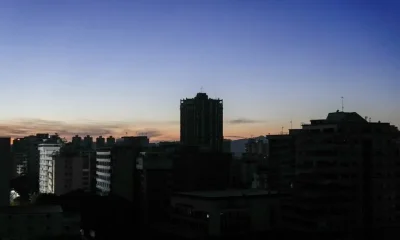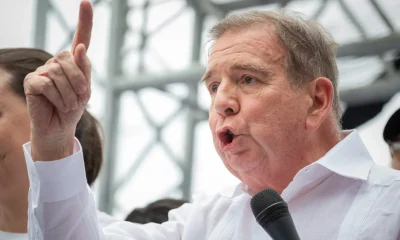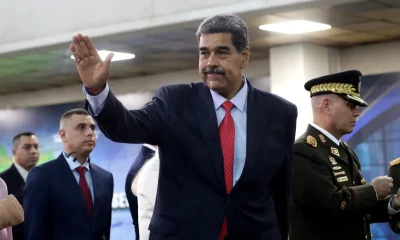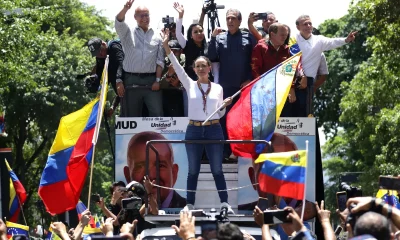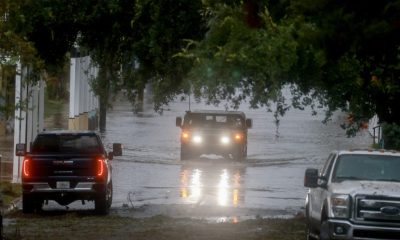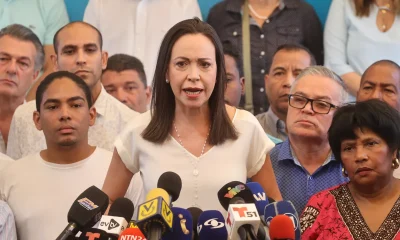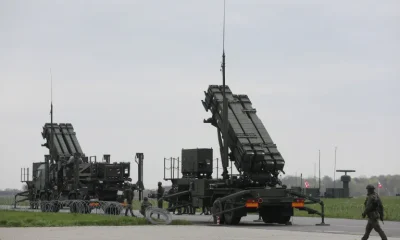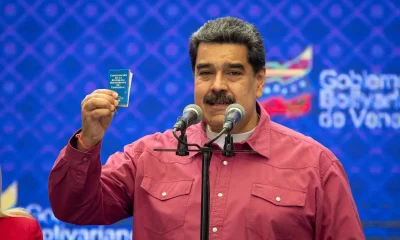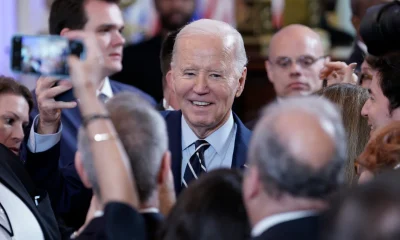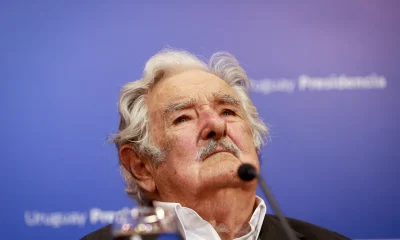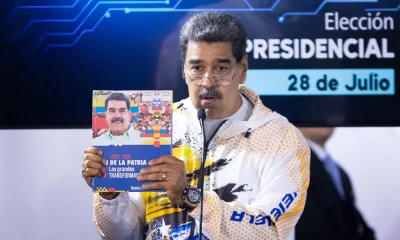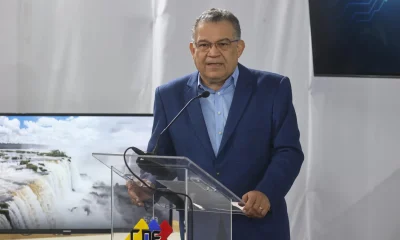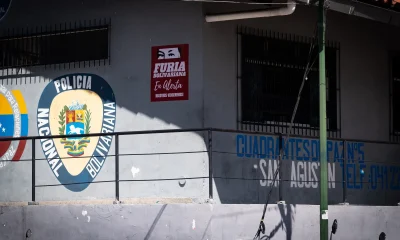International
U.S. assumed “temporary custody” of Venezuelan diplomatic headquarters
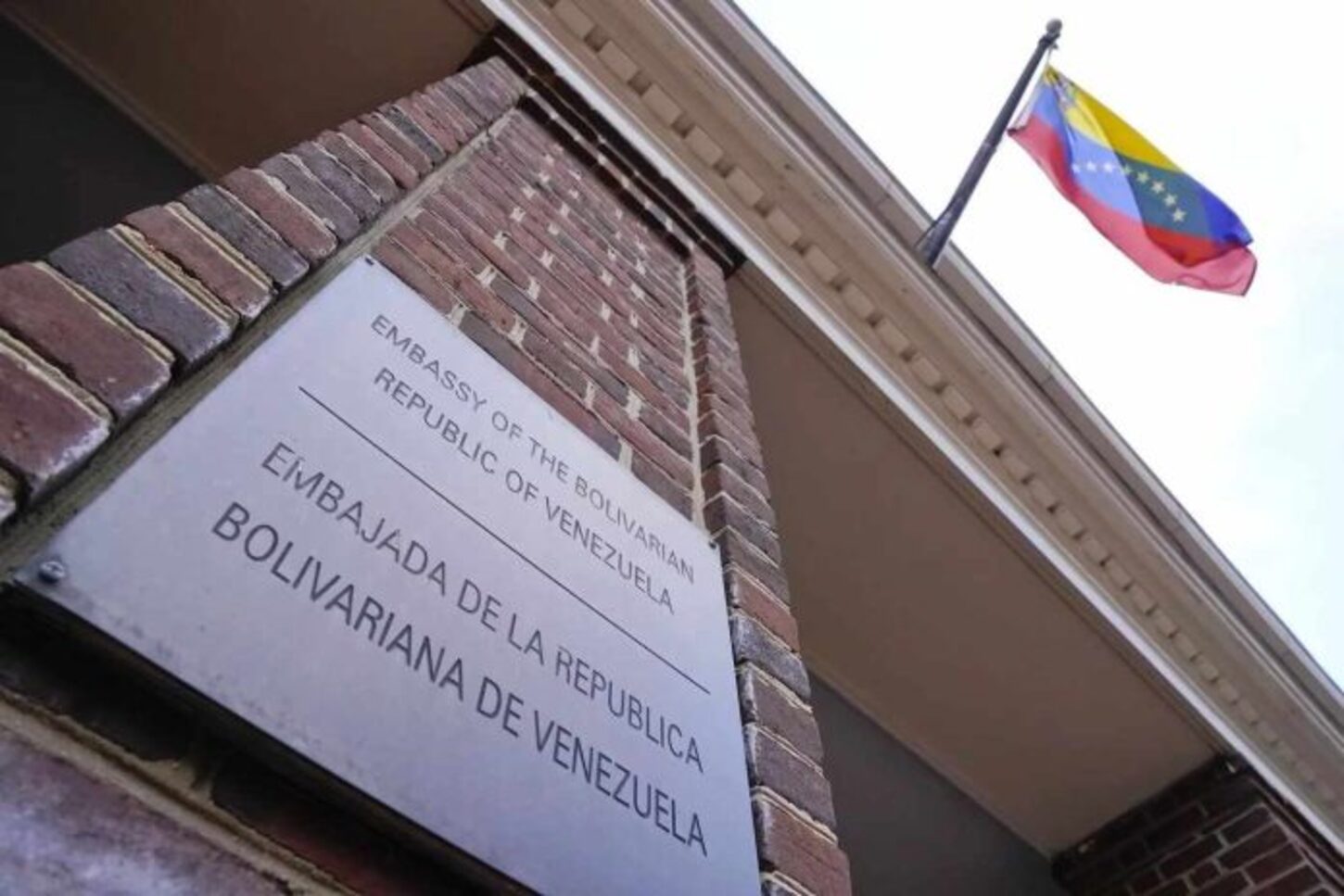
February 10 |
The United States government assumed “temporary custody” of Venezuela’s diplomatic headquarters in that country on February 6 and will have under its control the real estate and assets until the Venezuelan mission “resumes operations”, confirmed a US State Department spokesperson.
“This action is consistent with the Department’s authorities under the Foreign Missions Act and with U.S. obligations under the Vienna Convention on Diplomatic Relations to ‘respect and protect’ the facilities and property of a diplomatic mission that has been suspended,” a State Department spokesperson responded to Voice of America.
The spokesperson recalled that the Venezuelan embassy in the United States announced the closure of the bilateral mission on January 5 of this year, the date on which Carlos Vecchio ceased to act as diplomatic representative of the interim government, after Parliament of 2015 decided to dissolve the interim that was presided by Juan Guaidó.
The U.S. official reiterated that the United States continues to recognize the 2015 Parliament as the “last” democratically elected institution left in Venezuela.
The opposition-majority Parliament, which for the third consecutive time extended its mandate, left in office a five-member Council of Administration and Protection of Assets, a body competent to protect all Venezuelan goods or assets abroad.
One of the members of the Council is Fernando Blasi, who was appointed as representative of the 2015 Parliament in the United States. At the moment it is not clear how he will exercise his functions in view of the taking of custody of the diplomatic offices in the United States.
However, Dinorah Figuera, president of the 2015 Parliament clarified that the action of the US government was “done in a coordinated manner” with Blasi, who, she said, “coordinated the whole process with the State Department”.
“It was not a surprise procedure. We were all officially informed (…) it was what corresponded according to the Vienna Convention. There was presence of members of the mission in the procedure”, states a press release of the NA.
Figuera denied that there were people working in the diplomatic offices and that they were not allowed to enter, as was reported by some media.
Neither the government nor the Venezuelan Foreign Ministry have reacted.
Venezuela has been going through a complex institutional crisis since 2019 when, arguing that the 2018 elections, in which President Nicolás Maduro was reelected were “fraudulent”, Guaidó, was sworn in as interim president of Venezuela and was recognized by dozens of countries that imposed sanctions and supported the strategy of “asset protection” abroad, but in practice, Maduro never ceased to exercise power.
International
The Government of Colombia presents twelve questions that it will propose in a popular consultation to promote its reforms
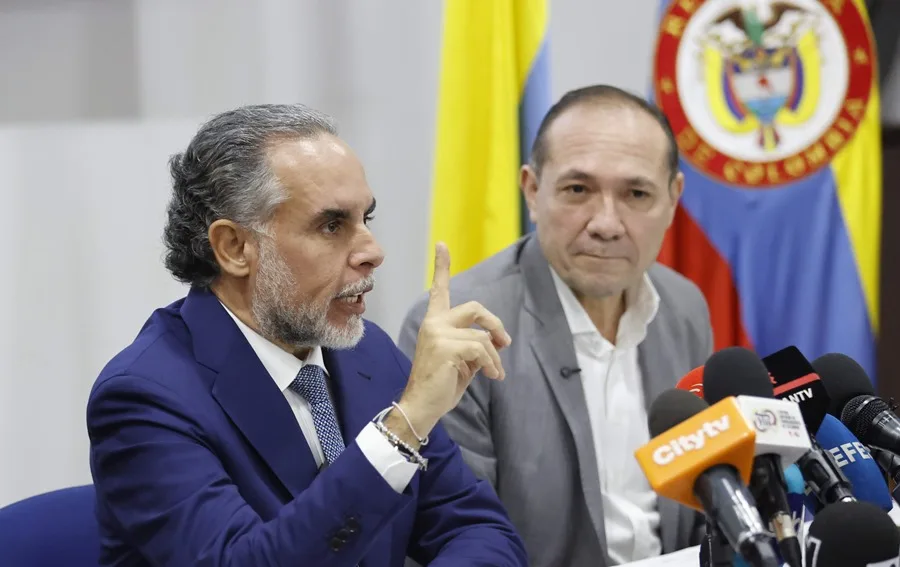
The Government of Colombia announced this Tuesday the twelve questions that will be included in the popular consultation that President Gustavo Petro will file on May 1 before the Senate to achieve the approval of the stagnant reforms in Congress.
The twelve questions are focused on the labor reform proposed by the Government and which was archived after its third debate in the Seventh Senate Commission last month.
“If we were not sure that these questions would get the yes, we would not be proposing them, it was that simple,” said the Minister of Labor, Antonio Sanguino, at a press conference with the Minister of the Interior, Armando Benedetti.
For his part, Benedetti said: “If the consultation is won, Congress has two periods before then to pass the law based on what was approved in the consultation or if not the president takes it out by decree.”
The consultation is binding if it obtains the necessary majorities and is declared valid in terms of participation.
In Colombia there are 40,963,370 people qualified to vote, so at least 13,654,456 citizens must pay for the popular consultation to be valid and for half plus one of the votes to be expressed in favor of each question of the Government.
Therefore, the consultation is “mandatory, first for Congress and then for the President of the Republic,” Benedetti added.
These questions “constitute the soul and backbone of the labor reform that will be proposed in the popular consultation that we hope will be endorsed or facilitated with the approval of the Senate of the Republic in its plenary,” explained Minister Sanguino at the press conference.
The consultation will consist of closed-answer questions: Colombians must vote ‘Yes’ or ‘No’ before each initiative and to move forward, “each question has to pass the threshold” required, Benedetti added.
The questions are aimed at improving the labor rights of all Colombians with proposals such as the regulation of the working day with a maximum of eight hours a day or the guarantee of medical permits, including licenses for disabling menstrual pain.
In addition, they have a section focused on the business world with proposals such as the elimination of outsourcing and abusive intermediation in employment contracts, minimum hiring quotas for people with disabilities or the guarantee of fair wages for rural workers.
The complete content of the questionnaire, according to the ministers, was built from more than 20,000 proposals sent by citizens through the portal enabled until last Monday, April 21.
The popular consultation must be officially filed by President Gustavo Petro, on May 1, as, as he said, a tribute to the working class of Colombia within the framework of International Labor Day.
International
Within Francis’ private wake: respect and prayer for the deceased pope

Two Swiss guards watch over Pope Francis’ coffin day and night in the chapel of his private residence. Next to him, a lit candle and at his feet, few flowers and some people who pray for him, only clerics, nuns or Vatican employees, all immersed in a climate of deep respect.
The wake has been arranged in what in his little more than twelve years of reign was his residence, since he did not want to inhabit the Apostolic Palace: the Casa Santa Marta, a simple and more lively building within the Vatican State, next to the apse of the basilica.
The coffin is made of simple wood, and has been installed in his private chapel, located on the ground floor, just as he himself wanted by simplifying what would be his funeral.
The body of the pontiff, who died yesterday Monday at the age of 88 due to a stroke and after months with serious respiratory problems, will be transferred this Wednesday to St. Peter’s Basilica for exhibition before the faithful.
But in the meantime, its burning chapel runs privately, reserved only for members of the Curia, religious or employees of the Holy See who must show their accreditation before crossing the walls of the hermetic Papal State, in the center of Rome.
Once inside, those who want to say goodbye to the pontiff must wait under this torrid April sun for a gendarme to allow them to access Santa Marta, protected by a strict security protocol.
Then they parade through the corridors of their ground floor, between saints, virgins and some plants, until they reach the chapel, which is entered in small groups.
Inside, several agents of the Vatican police and the Swiss Guard dressed as civilians conscientiously control that no one leaves the line: the sign is of maximum respect and decorum.
But also for security reasons since the first ecclesiastical authorities have already begun to arrive at the residence, several purpured – surely with the mind already in the conclave -, and also politicians, such as the president of Italy, Sergio Mattarella.
The chapel is a small room with a triangular roof, like a cement hut, supported on a row of four columns and in which, on one side, natural light creeps in, with a narrow gallery of crystals that overlook the Leonine walls.
Francis rests in the apse of the chapel, under a wooden crucifix and an inscription in golden letters that runs through the triangular ceiling: ‘Veni sancte spiritus reple tuorum corda fidelium’, a prayer: ‘Come Holy Spirit and fill the heart of your faithful’.
In the box, lined in red cloth, the pope appears dressed in purple coats, a sign of maximum distinction and dignity, with a white bishop’s mitre on his head and a rosary between his hands.
The coffin is guarded day and night by two Swiss guards with their colorful uniform, metal helmet, red feather and halberd in hand, but also by the faithful of the pope who have arrived at the enclosure.
In the middle of the morning, just after Mattarella’s visit, in the chapel there are about 45 faithful, some sitting in chairs and others standing: there are several archbishops, as indicated by their violet sashes, as well as nuns and other people who nail their knees on the ground to pray deeply, in the midst of a sepulchral silence.
A woman commits the recklessness of taking the phone out of her pocket, but one of the gendarmes who watch everything, with zeal, scolds her and requisitions the device, despite the lady’s reluctance. It’s the only case. The rest pray, meditate or shut up, ignoring the scene.
Others are just passing through, parade down the corridor, reach the height of the coffin, make the sign of the Cross and bow their heads before the inert body of the pope as a sign of respect.
At his feet, on a carpet, someone has left some branches of white and yellow flowers, the colors of the Vatican flag.
After the prayer, a Vatican employee shows you the exit, quick and direct because Vatican City does not allow walks.
In this chapel, Cardinal Camarlengo, Kevin Joseph Farrell, practiced the rite of the confirmation of the pope’s death, and then sealed his apartments as dictated by the old protocol to prevent the deceased’s documents from being touched.
From Wednesday morning the body of the pontiff will be exposed to the faithful in the Basilica of San Pedro and on Saturday his funeral will take place, before Francis rests forever in a simple crypt of the Roman temple of Santa María La Mayor.
International
Trump’s emissary will visit Russia this week for consultations on the arrangement in Ukraine
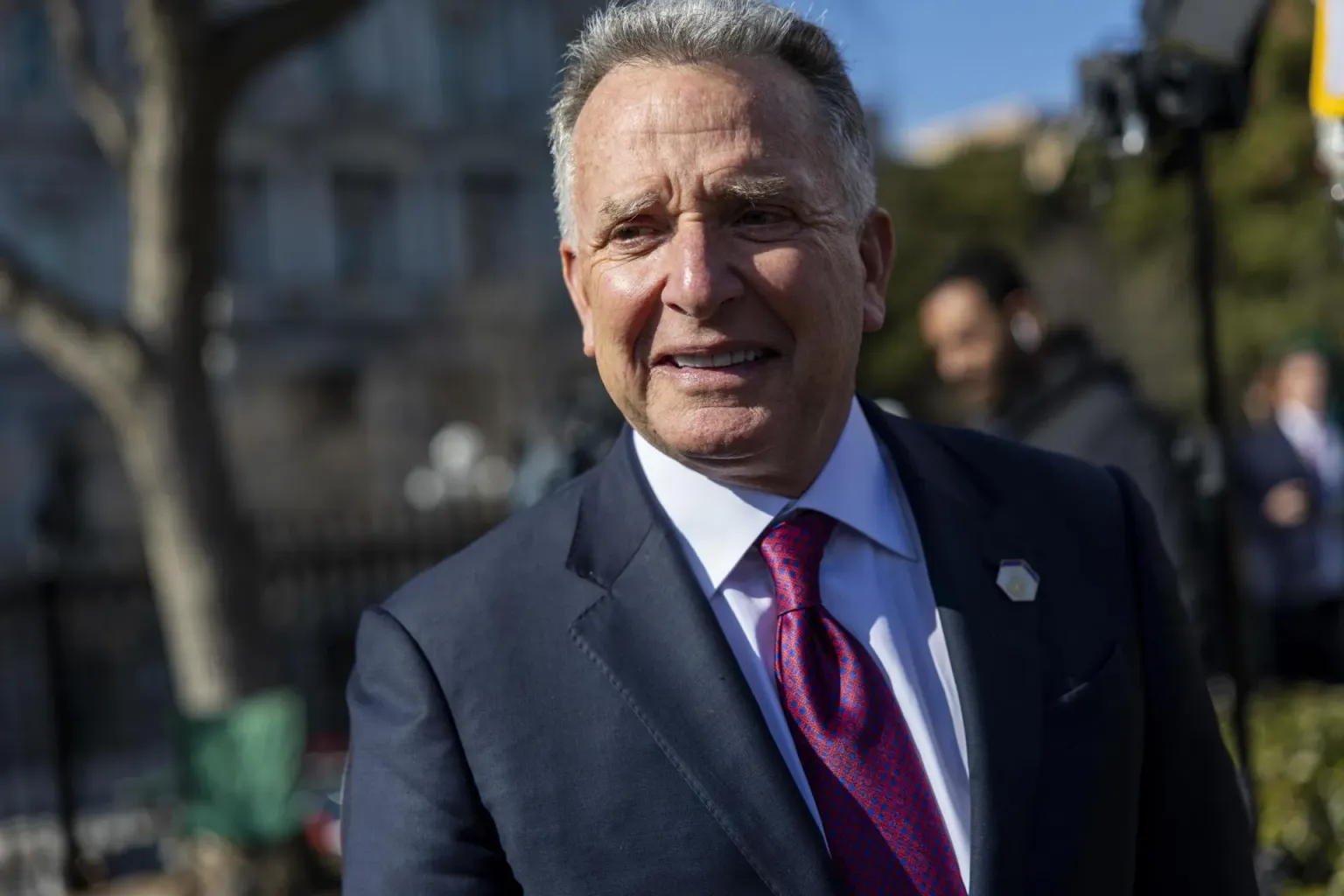
The enmissary of the United States, Steve Witkoff, will visit Russia this week with whose authorities he will consult on the White House’s plan for the peaceful settlement of the conflict in Ukraine.
“We are waiting for you,” Yuri Ushakov, the Kremlin’s international advisor, told local agencies.
The announcement came after US President Donald Trump assured that he will reveal details of his peace plan “in the next three days.”
Some sources have suggested that, in the event of an agreement, Europeans could deploy peacekeeping forces in Ukraine, something that Moscow has always categorically opposed.
In this regard, Kremlin spokesman Dmitri Peskov said today that the Kremlin does not yet know the content of Trump’s peace plan, which has not been published anywhere.
Witkoff held a meeting with Russian President Vladimir Putin on April 11 in St. Petersburg, the third in the last three months.
Then, he offered an interview in which he assured that one of the keys to the arrangement is the territorial issue, to which the Ukrainian president, Volodymyr Zelensky, replied that Kiev will never recognize the Russian occupation of its territory.
Trump and his Secretary of State, Marco Rubio, warned last week that if there was no progress in the coming weeks, the United States would consider abandoning the negotiations.
In response, Putin declared on Saturday a 30-hour Easter truce that Zelenski seconded, after which both sides resumed fighting.
Zelenski proposed to extend the cessation of attacks against civilian infrastructure for 30 days, an offer that Putin promised to study, even at the bilateral level, which triggered speculation about possible direct negotiations between Moscow and Kiev.
In this regard, the Kremlin spokesman assured today that for these talks to take place, Zelenski must annul his decree to prohibit trading with the current Russian president.
-

 Central America4 days ago
Central America4 days agoUN complaint filed against Costa Rica over detention of migrant children
-

 Central America2 days ago
Central America2 days agoSenator Van Hollen Meets with Deported MS-13 Member in El Salvador; Trump and Bukele React
-

 International4 days ago
International4 days agoACLU seeks emergency court order to stop venezuelan deportations under Wartime Law
-

 Central America23 hours ago
Central America23 hours agoCardinal Rodríguez to Attend Funeral of Pope Francis: “He Was Very Dear to Me”
-

 International3 days ago
International3 days agoThousands rally nationwide against Trump’s threat to U.S. democracy
-

 Central America23 hours ago
Central America23 hours agoNicaragua’s Ortega and Murillo Mourn Pope Francis, Acknowledge ‘Difficult’ Relationship
-

 International2 days ago
International2 days agoPope Francis Appears for Easter Blessing, Calls for Peace and Religious Freedom
-

 International23 hours ago
International23 hours agoDominican Republic Declares Three Days of Mourning for Pope Francis
-

 International23 hours ago
International23 hours agoDHS Secretary Kristi Noem’s Purse Stolen in D.C. Restaurant Heist
-

 International23 hours ago
International23 hours agoPope Francis: The Quiet Architect Behind the U.S.-Cuba Thaw
-

 International2 hours ago
International2 hours agoPope Francis and Trump, a relationship of disagreements marked by migration
-

 International2 hours ago
International2 hours agoAmerican universities and colleges sign a letter against Trump’s policy
-

 International1 hour ago
International1 hour agoA candidate for the Supreme Court denounces an unequal dispute in the judicial election of Mexico
-

 International2 hours ago
International2 hours agoBurma’s military junta extends ceasefire until April 30 due to the earthquake
-

 International1 hour ago
International1 hour agoThe pope last called the Gaza parish on Saturday and asked about the children
-

 International1 hour ago
International1 hour agoTrump’s emissary will visit Russia this week for consultations on the arrangement in Ukraine
-

 International1 hour ago
International1 hour agoWithin Francis’ private wake: respect and prayer for the deceased pope
-

 International1 hour ago
International1 hour agoChurch charges ceased or resigned in the papacy of Francis for cases of pedophilia
-

 International1 hour ago
International1 hour agoCardinal Becciu’s enigma: will he enter the conclave?
-

 International1 hour ago
International1 hour agoRoyal quinoa, the superfood that grows in front of the largest salt flat in the world in Bolivia
-

 International1 hour ago
International1 hour agoThe Government of Colombia presents twelve questions that it will propose in a popular consultation to promote its reforms
-

 International1 hour ago
International1 hour agoInternational leaders begin to confirm their presence at Pope Francis’ funeral
















